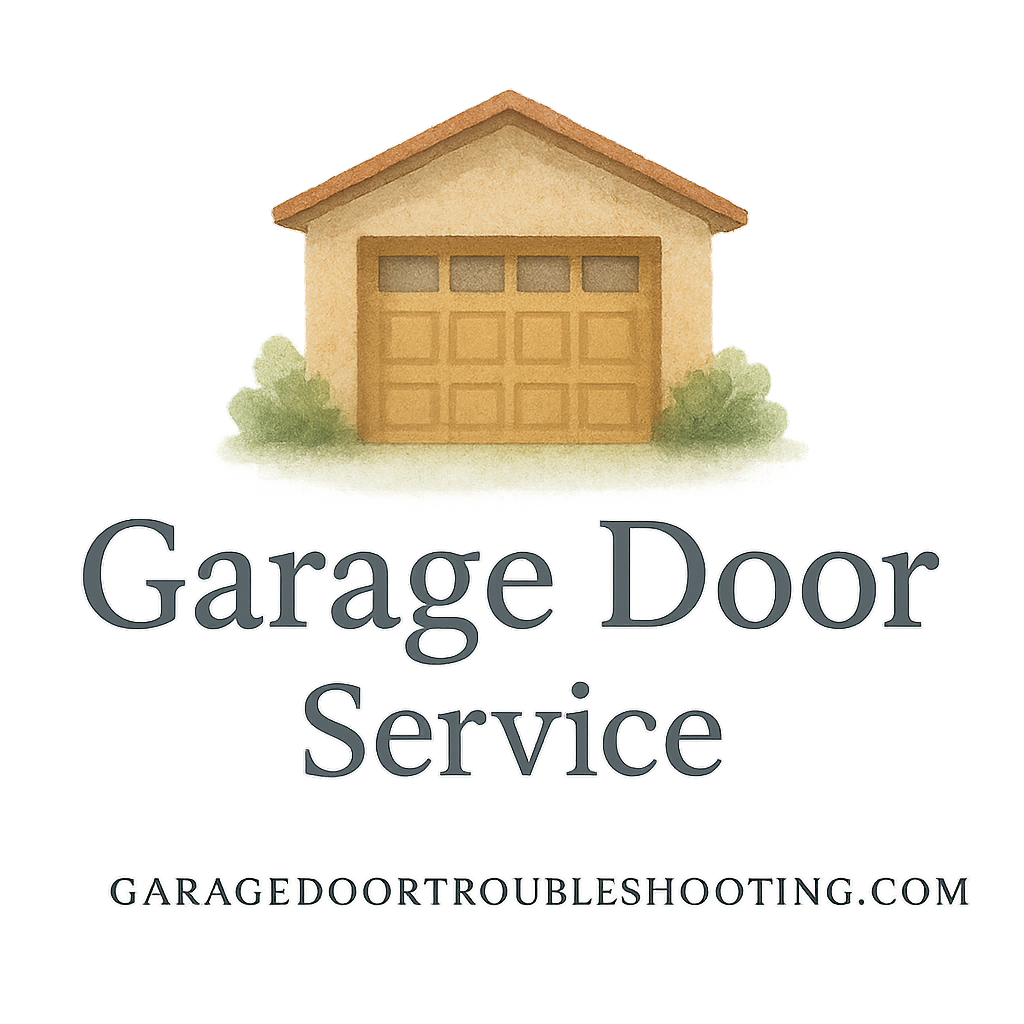Introduction: Why Sensors Matter in Garage Door Repairs
Ever noticed your garage door refusing to close, even though nothing’s in the way? That’s often because of the sensors. These small yet crucial devices prevent accidents, injuries, and damage by detecting obstacles in the path of the door. When sensors fail in garage door repairs, it’s not just an inconvenience—it can be a real safety risk.
In this guide, we’ll break down the 6 most common reasons sensors fail in garage door repairs, how to troubleshoot them, and when it’s smarter to call in the pros.
Common Signs Sensors Fail in Garage Door Repairs
Before diving into the reasons, let’s spot the warning signs. If your garage door is acting strange, these clues often mean your sensors are struggling.
Door Doesn’t Close Properly
A half-closing door that quickly reverses back up is usually the first giveaway.
Flashing Sensor Lights
Most modern sensors have LED lights. If one or both are blinking, it signals trouble.
Unresponsive Remote
Sometimes, the door won’t respond to the remote at all, leaving you stuck.
Reason 1: Misalignment of Sensors
Probably the #1 culprit. Sensors sit a few inches above the ground on either side of your garage door. If they’re not aligned, the system thinks there’s an obstruction.
How Misalignment Happens
- Vibrations from daily use
- Kids or pets bumping into them
- Loose mounting brackets
Fixing Alignment Issues
Simply adjust them so the lights are steady instead of blinking. If alignment keeps failing, check out these garage door repair guides.
Reason 2: Dirty or Blocked Lenses
You wouldn’t wear glasses covered in dirt, right? The same goes for your sensors.
Dust, Cobwebs, and Everyday Debris
Over time, lenses collect dust, cobwebs, or leaves that block the infrared beam.
Simple Cleaning Tips
Use a soft cloth and mild cleaner. Avoid harsh chemicals that could scratch the surface. Routine cleaning is also part of smart garage door maintenance tips.
Reason 3: Wiring Issues or Loose Connections
Sometimes the problem isn’t visible at the sensor itself—it’s hidden in the wiring.
Wear and Tear on Wires
Rodents, moisture, or just age can damage wiring, causing interruptions.
Troubleshooting Electrical Problems
Check for loose connections or frayed wires. If electrical work isn’t your comfort zone, it’s safer to hire garage door services professionals.

Reason 4: Sunlight and Environmental Interference
Believe it or not, sunlight can mess with your garage door sensors.
Direct Sunlight Problems
Bright light can mimic the infrared beam, confusing the sensors.
Weather Effects on Sensors
Extreme cold or heavy rain can also cause temporary failures. Learn about important precautions for weather-related issues.
Reason 5: Sensor Damage from Impact
A small bump can cause a big headache.
Kids, Pets, and Accidental Bumps
Kids playing ball, a curious pet, or even your car bumper could knock sensors out of commission.
When Replacement Is Necessary
If the casing is cracked or the lens is shattered, replacement is unavoidable. That’s where checking buying guides comes in handy.
Reason 6: Power Supply or Circuit Board Failure
Sometimes the issue runs deeper than dirt or misalignment.
Low Voltage Issues
If your garage isn’t getting consistent power, sensors may fail.
Circuit Board Malfunctions
The logic board in your garage door opener could be at fault. This usually calls for professional garage door installation advice or repair.
DIY vs Professional Help for Sensor Failures
When You Can Fix It Yourself
- Cleaning dirty lenses
- Realigning sensors
- Checking for small obstructions
When to Call Professionals
If the wiring, power supply, or circuit board is the problem, it’s time to hire a professional provider. Some repairs are too dangerous for DIY, as explained in dangerous repairs.
Preventing Sensor Failures in Garage Doors
Regular Cleaning and Maintenance
Include sensor checks in your monthly maintenance plan.
Scheduling Professional Checkups
Annual inspections ensure long-term safety and security.
Safety Risks of Ignoring Sensor Problems
Danger to Children and Pets
Sensors exist to protect little ones from being trapped under the door. Learn more about childproof safety.
Risks to Property and Vehicles
Without sensors, your car, bike, or even storage items could get crushed.
Choosing the Right Professional for Garage Door Repairs
What to Ask Before Hiring
- Do you offer a service contract?
- What’s your track record in garage door repair?
Importance of Service Contracts
A good service contract gives you peace of mind that issues will be handled quickly and affordably.
Conclusion
So, why do sensors fail in garage door repairs? From misalignment to power supply issues, the reasons vary—but the risks are the same. A malfunctioning sensor isn’t just a hassle, it’s a safety hazard. By cleaning regularly, inspecting wires, and calling professionals when needed, you can keep your garage door reliable and safe for your whole family.
For more tips, check out Garage Door Troubleshooting and explore resources like installation advice, maintenance tips, and safety guides.
FAQs
1. How do I know if my garage door sensor is bad?
Look for blinking lights, a door that won’t close, or unresponsive remotes.
2. Can direct sunlight really cause sensor failure?
Yes, sunlight can mimic the infrared beam and confuse the system.
3. How often should I clean garage door sensors?
A quick monthly wipe-down is enough for most households.
4. Should I try fixing sensor wiring myself?
Only if you’re experienced. Otherwise, hire professionals to avoid electrical hazards.
5. What’s the average cost to replace garage door sensors?
It ranges from $50 to $150, depending on your opener model.
6. Can I use my garage door without sensors?
Technically yes, but it’s unsafe and not recommended.
7. How do I choose a reliable garage door service provider?
Look for good reviews, transparent pricing, and solid service quality.


